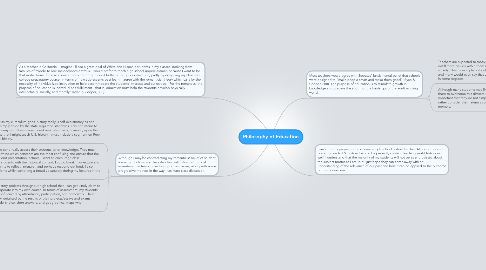Philosophy of Education
by Matt Bullington

1. As a teacher in California, I imagine I'll see a great deal of White and Hispanic students in my classes, deriving from families of middle-to-low socioeconomic status. I would prefer to teach high school upperclassmen because I want to be that motivational force who encourages them to proceed further into higher education, partly by designing my class as a college preparatory course. In terms of how adolescents best learn, I agree with the romanticist theory which calls for the necessity of individualized instruction to help accommodate the students' interests and curiosities. "For the romantics, the purpose of education is individual self-fulfillment - that is, education must help the students develop physically, intellectually, socially, and morally" (Ryan & Cooper, 300).
2. Although I may be contradicting my romanticist belief of student learning, I believe my class structure will follow patterns of essentialism in terms of lecturing to the masses, along with some progressive motives in the way I facilitate class discussion.
2.1. As far as my curriculum goes, history really is self-explanatory as one must simply abide by the state regulated standards. I do not intend to deter away from these curriculum-based standards, however, upon the chance that I might teach U.S. history, I must include a segment on Rock n' Roll history.
2.2. I believe that it is very important for history teachers to continually access their students' prior knowledge. They must review previously discussed topics incessantly to determine which concepts are the most confusing and ensure that the whole class is up to par. Aside from a string of PowerPoint presentation lectures, I want to encourage class participation to the fullest extent. Upon providing my students with the historical context, I could break mid-lecture and pose a question to the class, giving them the opportunity to reflect, interpret, and perhaps respond out loud. I also intend on inducing writing assignments upon my students whilst exhibiting a broad vocabulary during my lectures in the attempt of boosting their overall literacy.
2.3. I have produced several history projects throughout high school that I can genuinely claim to be proud of and may incorporate into my own course. In terms of assessment, my students' grades will be moderately influenced by attendance, participation, and homework. Their grades will be most heavily weighted by the results of their projects/essays and exams which will consist of multiple-choice, short answers, and geographical maps when applicable.
3. Most teachers would agree with Socrates' fundamental belief that schools were designed to "make people smart and make them good" (Ryan & Cooper, 288). The purpose of education is to stimulate growth in knowledge and prepare the youth for the hardships of the adult working world.
3.1. Teachers are expected to motivate students academically and instill moral values within them as contributing members of society. Their lesson plans should be engaging for the students and many would even say that teachers must serve as role models in some respects.
3.2. Although many students may find school to be a bore, it is essential for them to overcome this distaste and bear down to work hard. It is important that they do not simply regurgitate information for tests, but rather consider the materials cognitively and supplant in their long-term memory.
4. I am currently preparing to become a high school history teacher. Although I would prefer to teach U.S. history, I would be perfectly content teaching world history as well. I understand that the majority of my students will not be as enthusiastic about the subject matter as I am, but I just hope they can come away with an understanding of the relevance of our past and how it can be applied to the outcome of the modern era.


